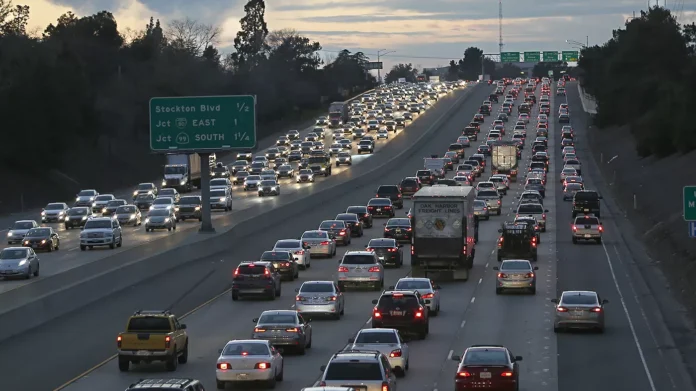Truck manufacturers have filed a lawsuit against California regulators, claiming that the Golden State does not have the authority to enforce its heavy-duty vehicle emissions standards. This complaint, submitted on Monday to the U.S. District Court for the Eastern District of California, argues that the state’s standards are stricter than federal regulations, and truck makers should not have to comply.
The dispute between the truck manufacturers and the California Air Resources Board (CARB) centers around new regulations that were approved in 2018. These regulations require heavy-duty trucks to meet stricter emissions standards in order to reduce air pollution and combat climate change. The standards apply to both new and existing vehicles, and truck manufacturers must either meet the standards or face hefty fines.
However, the truck manufacturers involved in the lawsuit claim that the regulations are not only unreasonable, but also beyond California’s jurisdiction. They argue that only the federal government has the authority to regulate vehicle emissions, and that the state is overstepping its boundaries by imposing stricter standards.
This lawsuit comes at a time when many states, including California, are taking aggressive measures to combat climate change. The transportation sector, which includes heavy-duty trucks, is responsible for a significant portion of greenhouse gas emissions and air pollution. In response, California has been at the forefront of implementing regulations to reduce emissions from vehicles.
The state’s regulations have already had a positive impact, with a significant reduction in air pollution and greenhouse gas emissions seen since their implementation. However, the truck manufacturers argue that the state’s standards are too strict and will result in major financial burdens for their businesses.
In the complaint, the manufacturers claim that the state’s regulations will not only increase the cost of producing heavy-duty trucks, but also lead to lower fuel efficiency and inferior engine performance. This, they argue, will ultimately hurt their businesses and hinder their ability to compete in the market.
The lawsuit has sparked a debate over the extent of state authority when it comes to regulating emissions and fighting climate change. While California and other states have the right to set their own emissions standards, truck manufacturers argue that these regulations should not exceed federal standards.
On the other hand, supporters of California’s regulations argue that the state has the right to enact stricter standards in order to protect the health and well-being of its citizens. They also point out that these regulations will ultimately benefit the environment and help combat the effects of climate change.
The outcome of this lawsuit could have significant implications not only for California, but for other states as well. Many states have adopted California’s emissions standards, and a change in these regulations could affect their efforts to reduce emissions and improve air quality.
Environmental groups have also joined the debate, expressing concerns over the potential weakening of California’s regulations. They argue that the state’s stricter standards are necessary in the face of climate change and that allowing truck manufacturers to skirt these regulations would be a major setback in the fight against air pollution.
In response to the lawsuit, CARB has stated that it will vigorously defend the state’s regulations. The agency argues that the state has the right to set its own standards and is confident that the federal court will uphold its authority.
This lawsuit highlights the ongoing tensions between state and federal authority in the United States. It also raises important questions about the role of government in regulating emissions and protecting the environment.
As the case progresses, it is crucial that all parties work towards finding a solution that balances the needs of the industry with the need to combat climate change. This should not be a battle between truck manufacturers and California regulators, but rather a collaborative effort to reduce emissions and create a cleaner, healthier future for all.

